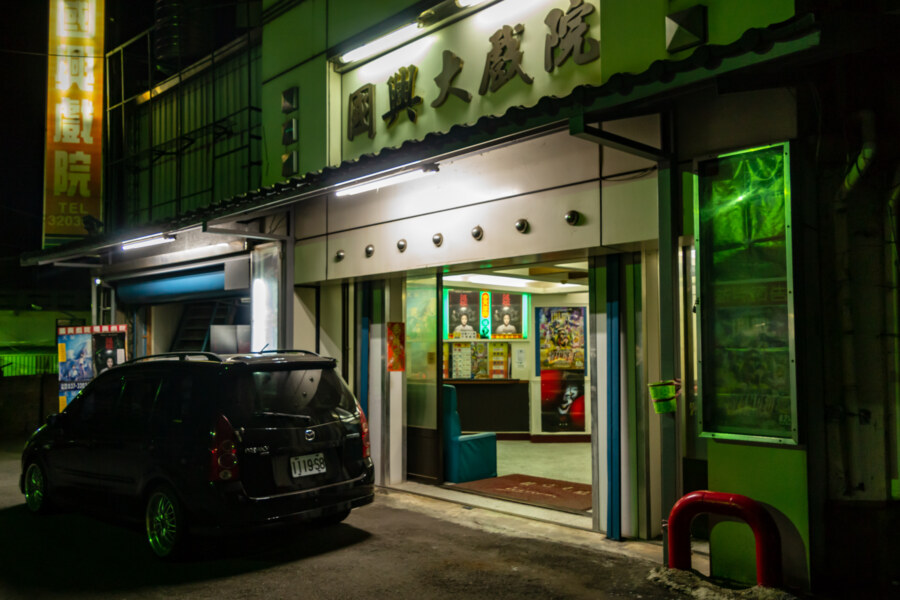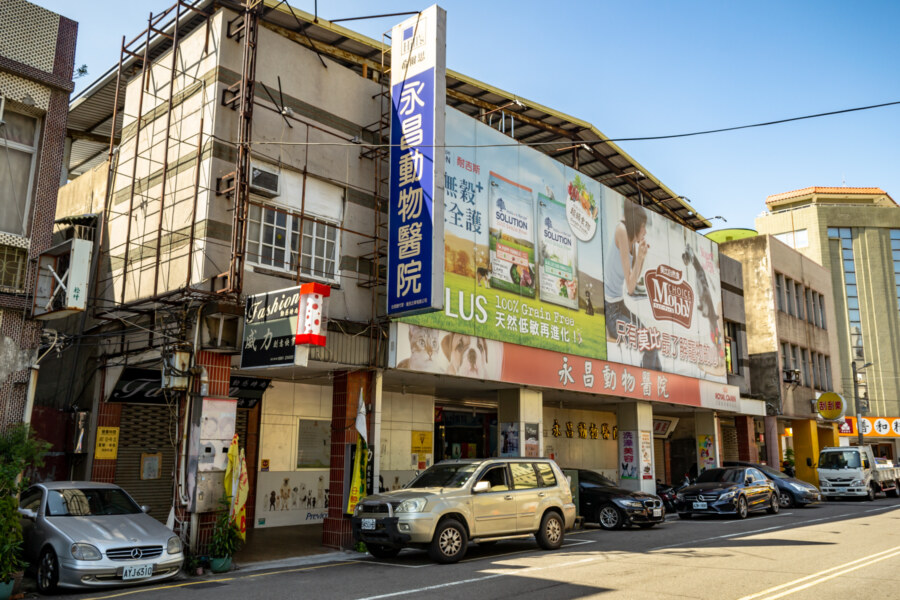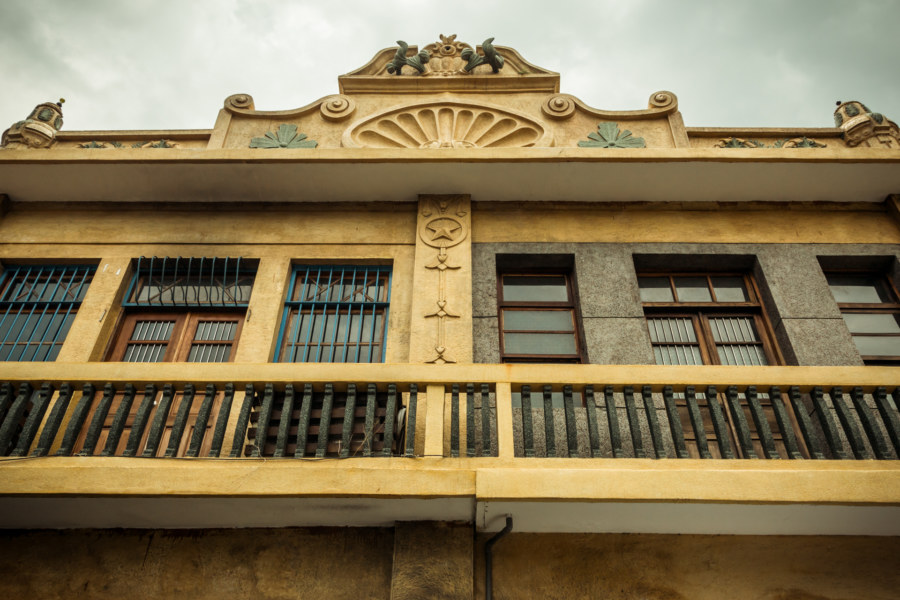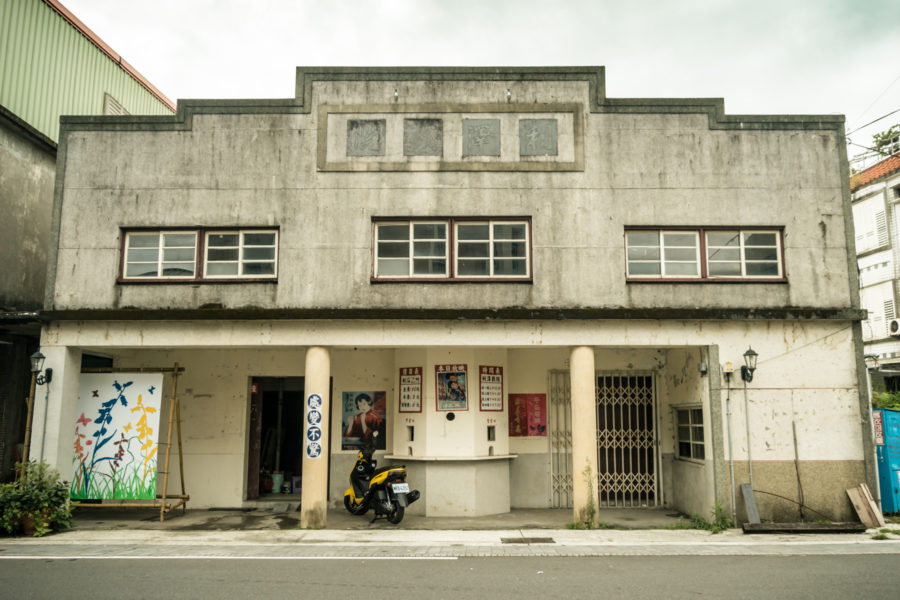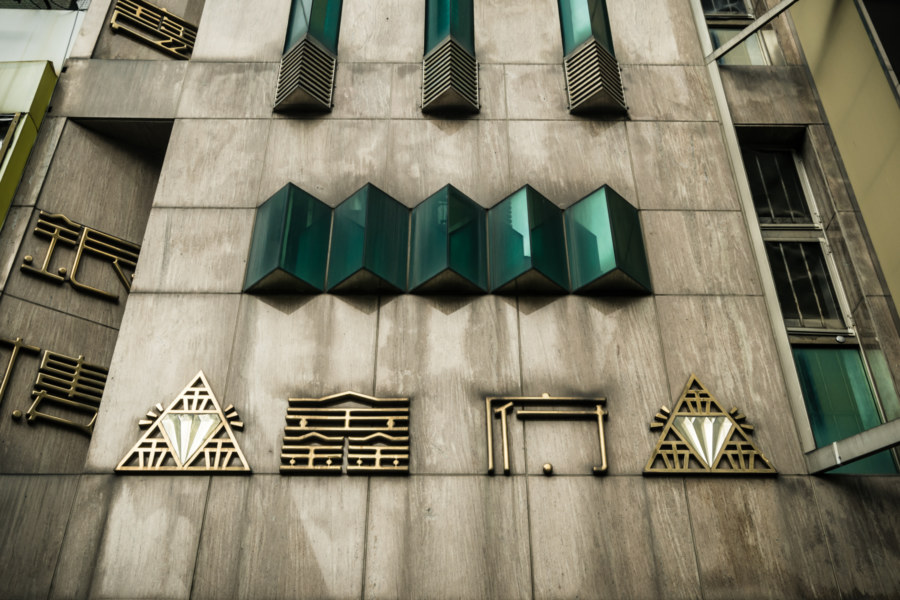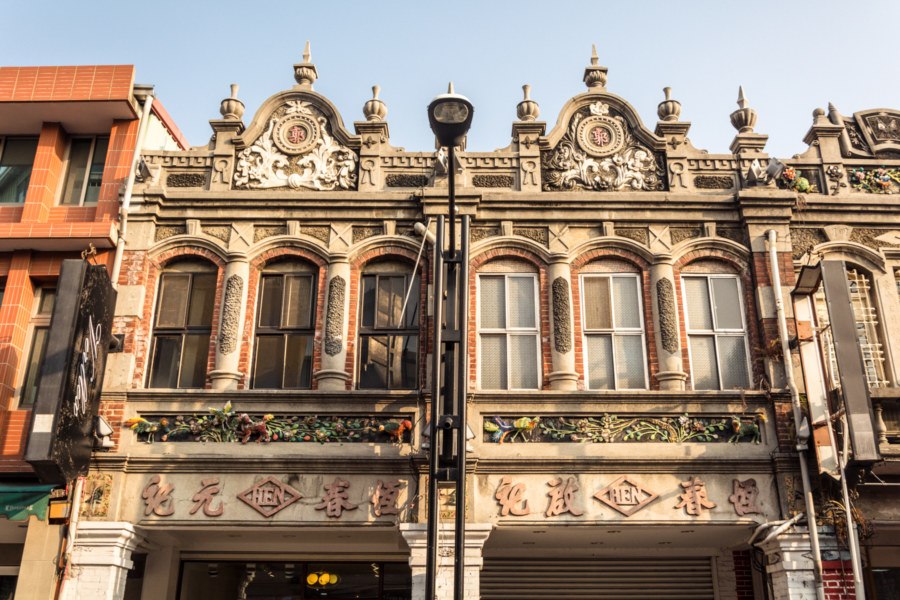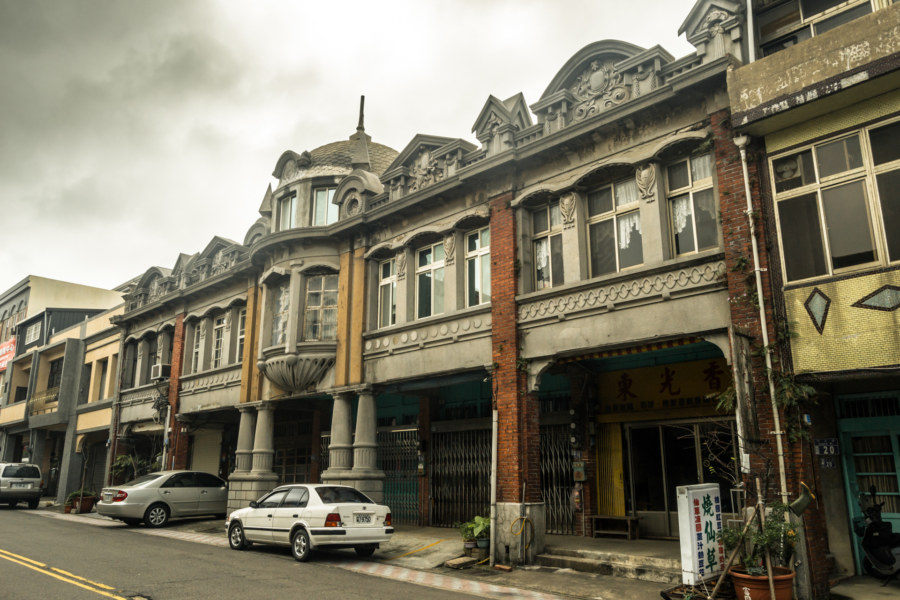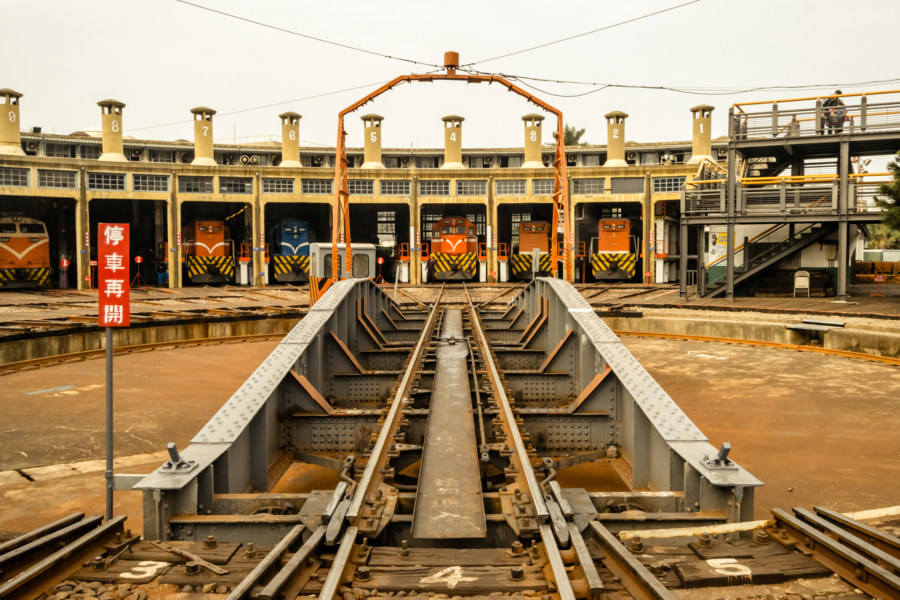Guóxìng Theater (國興戲院) was the very last standalone movie theater operating in Miaoli, Taiwan. After 70 years in the cinema business it closed for renovations in the final days of 2019, never to reopen. Apparently the intention was to return sometime after the Lunar New Year break in early 2020, but then the pandemic struck. Three years later it is probably safe to assume it’ll never show another film, marking an end to an era of independent cinema in Miaoli.
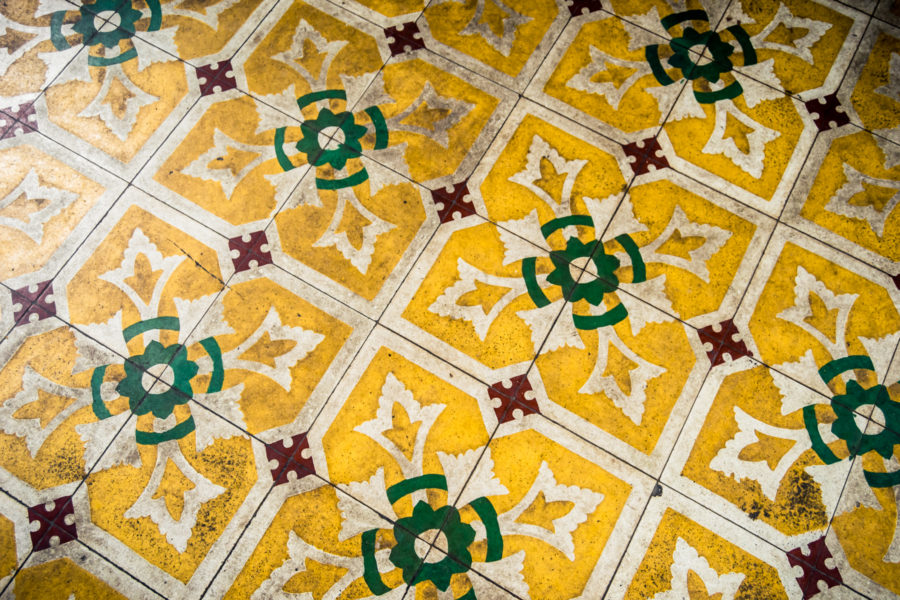
Echoes of the last century.
Miaoli Theater 苗栗戲院
The former Miaoli Theater (苗栗戲院) is located in the heart of Miaoli City, a mid-sized settlement of 86,000 residents in north-central Taiwan. Approximately 30 theaters were once found scattered around Miaoli County—with at least 5 located here in the city, but as of 2023 only two of those remain standing (with Guoxing Theater being the other one). Few authoritative sources exist to substantiate the early history of Miaoli Theater, but evidence indicates it was operating in the 1950s, and movies were shown all the way into the early 2000s—an unusually long run for a standalone theater from this era. It was eventually sold, shut down, and converted into the Yǒngchāng Animal Hospital (永昌動物醫院), a pet supplies store and veterinarian clinic.
Huadong Valley Ride 2018: Yuli to Guanshan
Day four of riding through the Huadong Valley of eastern Taiwan in 2018 began in Yuli, the midpoint of this bicycle trip from Hualien City to Taitung City. From the weather report I knew I’d have another challenging ride ahead—yet again the mercury was due to exceed 35 degrees. Luckily I was in no great rush, as I had allocated an entire week for a trip that experienced riders could easily manage in two days. I made good use of that extra time, making numerous stops and detours to document some of the many historic and cultural sites along the way, many of them quite obscure. I ended the day in Guanshan, slightly more than 40 kilometers down the valley.
Postcards From Xiluo 西螺明信片
Xiluo is a small historic town on the south bank of the Zhuóshuǐ River 濁水溪 in Yunlin. It emerged as an important center of trade in central Taiwan during the Qing dynasty era and continued to prosper into the early 20th century under Japanese colonial rule. Disaster struck in 1935 when the devastating Hsinchu-Taichung Earthquake ripped through north-central Taiwan, reducing much of Xiluo to rubble. Colonial authorities and the local gentry worked together to rebuild, taking the opportunity to completely remodel the main commercial thoroughfares with an intriguing blend of influences from Baroque Revival, Art Deco, and Modernist architecture. A short stroll down Yánpíng Old Street 延平老街 reveals that many of these unique shophouses and commercial buildings remain standing today.
Lize Theater 利澤戲院
The obscure Lìzé Theater 利澤戲院 is located in the village of Lìzéjiǎn 利澤簡 in Wujie, a rural township just east of Luodong in Yilan, Taiwan. Built in 1964, it once served as a cinema and playhouse, hosting a variety of films and live theater performances for the local populace before slipping into decline in the 1980s, a little earlier than most other theaters I’ve visited around the nation. Afterwards the theater was converted for use as a clothing factory but this also went out of business. Nowadays the building is more disused than abandoned, as descendants of the original owner are still making use of the structure for storage and other purposes. In a stroke of good luck I happened to visit while the door was open—and after communicating my interest in the history of old theaters in Taiwan I was invited in for a brief chat and look around. Each theater has its own story to tell—but in this case I was particularly interested in learning why a theater was built in such a small and seemingly unimportant village.
A Gem of a Storefront
A classy storefront in Hsinchu not far from the train station.
This storefront immediately caught my eye when I arrived in Hsinchu a few hours ago. Both the facade and the lettering are unusually classy, showing a vintage style of design not commonly seen here in Taiwan. This is a jewelry shop, as the clever use of characters would suggest, and its formal name is Xīnfǔ Zhūbǎo 鑫府珠寶. The first character, xīn 鑫, is known as a sāndiézì 三叠字, or triplet character, and is composed of three instances of jīn 金, which means gold. Whoever designed the lettering obviously had some fun integrating a sparkling jewel into the two characters on either side of the shop’s name!…
Taiping Old Street 太平老街
Taiping Old Street (太平老街) is an unusually long stretch of Japanese colonial era shophouses in central Douliu, the administrative seat of Yunlin, Taiwan. Located not far from the train station, this old street is remarkable for its length (600 meters long), consistent architectural style (almost entirely local variations on Baroque Revival), and relatively good state of preservation. Despite this, it is not a huge attraction, which is just as well if you’re not a big fan of mass tourism in Taiwan.
Fugang Old Street 富岡老街
Fùgāng Old Street 富岡老街 is an obscure anachronism in the western part of Taoyuan, Taiwan. It extends from a railway station that opened during the Japanese colonial era in 1929 through the heart of this small Hakka town. The coming of the railroad brought prosperity to the area and several ornate shophouses were built around the station in a mishmash of architectural styles common at the time. Nowadays it is just another street in rural Taiwan, albeit one with a little more history than most, possibly because it is too unimportant a place for modernization to have swept away these vestiges of the past.
Zhongyuan Theater 中源大戲院
Zhōngyuán Theater 中源大戲院 is a second-run theater located in the heart of Zhongyuan Night Market 中原夜市 in Zhongli, Taiwan. Zhongyuan Theater is ideally located next to the university of the same name amidst a huge population of budget-conscious students—which may explain why it remains in business unlike hundreds of other old theaters that have fallen into ruin in recent years, victims of changing consumer habits and strong competition from more modern multiplexes. Zhongyuan is also one of the very last theaters in the nation where you will find hand-painted movie posters hanging outside, a nostalgic practice more widely associated with Chin Men Theater 全美戲院 down in Tainan.
Changhua Roundhouse 彰化扇形車庫
One of the most extraordinary attractions in Taiwan is the historic Changhua Roundhouse 彰化扇形車庫, originally built in 1922 during Japanese colonial rule and still in operation today. Although information is hard to come by it seems that it might be the only roundhouse still operating in Asia—and certainly one of the oldest still in regular use anywhere in the world. Every other roundhouse I researched for this article has been abandoned, demolished, repurposed, or converted into a museum—and those rare few that are still operational have been mighty hard to date. As such, the Changhua Roundhouse is a dream to visit for a railway enthusiast like myself, particularly since the ambiance hasn’t been ruined by the sort of tacky treatment you’ll often find at Taiwanese tourist attractions. After signing in with the guard at the gate I had free run of the place—and as you can see from some of the following photos, nobody minded me getting shockingly close to moving trains as the mechanics went about their daily routines.
